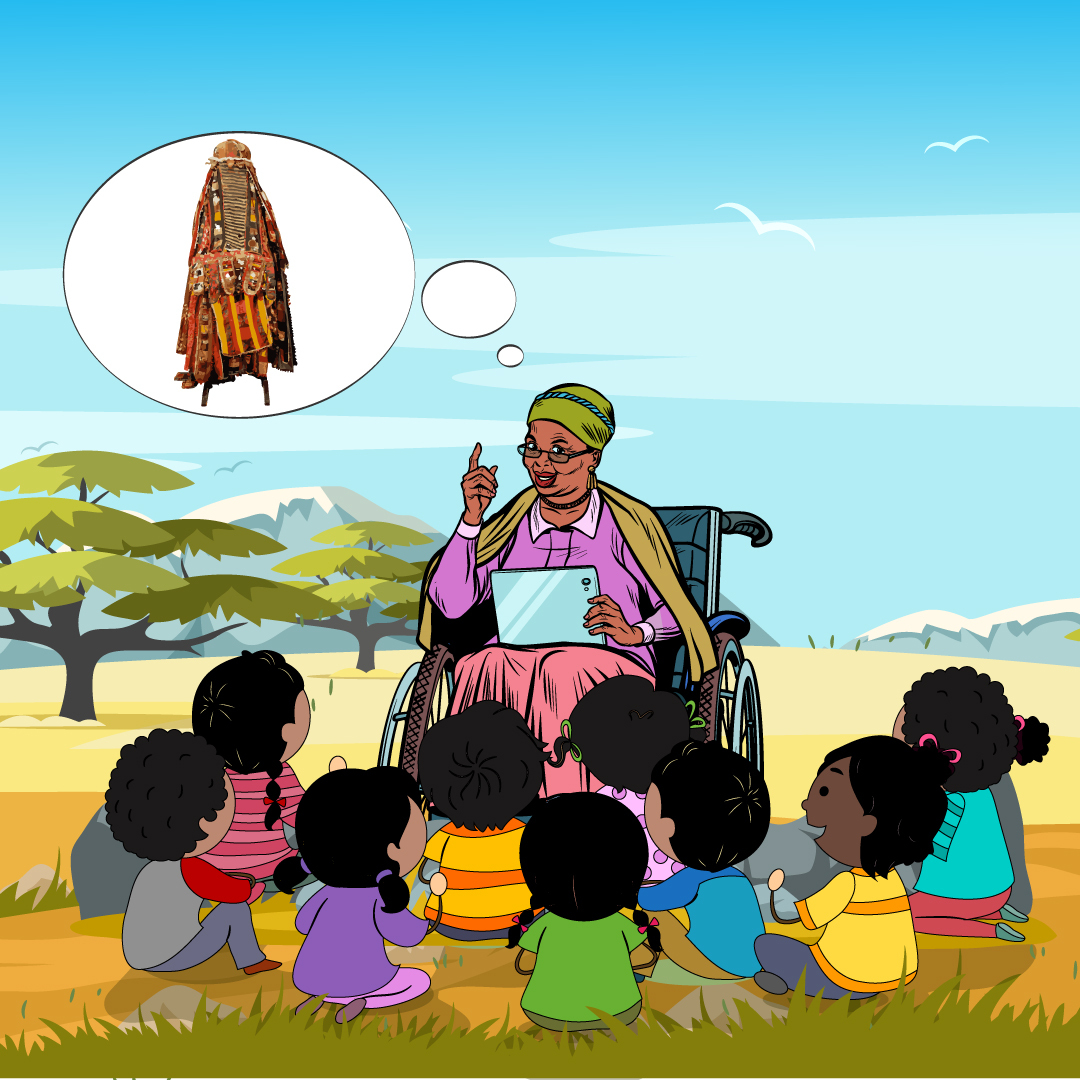Its feet came alive to the sound of the drums, sending clouds of dust on a celestial journey and veneration in the hearts of the spectators. It twisted and turned with an unearthly spiritedness. It had a sculpted head and raffia for a body and was nothing like the rest of the masquerades which paraded the square. Word on the street had it that it had appeared mysteriously amongst the ‘sons of the gods’ five years ago. In fact, some believed that it carried the flexibility and charm of a woman. These were mere speculations, of course. No woman would be mad enough to pull off such a sacrilegious act unless they had a deathwish. Or was there a woman mad enough?
If there was anything a female child should be, Ntachi was the opposite. If she’d been born into a family of boys, one would have believed their behaviour rubbed off on hers and perhaps neglect the fact that she was a strong-willed child. Once, while helping her father load tubers of yam in the barn, she had inquired why women were neither allowed to sit in the agbara nor partake in the masquerade festival. “Ọ bụ omenala anyị“, he had simply replied, hoping to end the conversation with the mention of tradition. And when she tried to prod further, he told her it wasn’t in her place to question the order of things. That is how it had been even before he was born and would remain so even after he was long gone.
His reply which was meant to snuff out the fire of curiosity that burned in her young mind stirred up fresh excitement and desires. She wasn’t one to let go of things so easily, even her father knew this. He had often wondered what her fascination with the masquerades was. As a toddler, she’d drape wrappers over herself, mimicking the masquerades whilst chasing her elder sister, Nene, who would often pretend to be terrified of her. She enjoyed it so much that she’d roll on the red earth giggling heartedly.
Childhood fantasies may have been known to slowly fade with age but Ntachi’s stuck to her like an adhesive. Now a full-grown woman of 21 years, with skin as black as ebony and behind as wide as the untilled rain-forests of South-South Nigeria, she couldn’t shut out the voice in her head which urged her on until she succumbed. One evening as she sat in front of her mother’s kitchen pounding melon seeds for dinner, Ikpo, a young boy of about 9 years dashed towards her almost filling up the mortar with sand as he slid to a halt. “He’s waiting for you at that place”, he said. Ntachi barely had time to acknowledge the message before he dashed off again in the direction he’d come from with his dada flowing freely in the evening breeze.
Ntachi quickly packed up the mortar and left to meet up with Kelechi, her newfound lover. She had befriended him not because she was attracted to him but because he was a means to an end. He was the son of Omengaga, the head of the masquerades. The old man had died a tragic death two years ago. According to neighbours, Omengaga had come in drunk as usual and began hauling abusive words at his son, calling his mother a whore and him a bastard. Kelechi shoved him aside as he stomped out of the house and the old man hit a foot on a nearby stool. What seemed to be a simple cut led to a severe case of footrot. When he couldn’t take it anymore, he took out his machete and took a hard swing at the foot. A few weeks later, he died and this meant that his son would be taking his place as the custodian of the masquerades.
Ntachi had jokingly told him she wished she could parade with the masquerade. He had swiftly replied with a fierce stare. She kept warming up to him until he sluggishly gave in, reminding her that if anyone found out about it, both their heads will be chopped off their bodies. The festival was in a day and he told her where to meet up with him to collect the costume.
When she met up with him, she could smell the fear around him as much as she could smell the stale sweat on the costume he held in his left hand. She plastered kisses on him and assured him she’d be as careful as possible. When Ntachi joined in the masquerade procession at the festival, she never felt more alive. She was expecting to be struck with madness or leprosy as some old prophecies had insinuated, but no such thing happened. Rather, she felt connected to something stronger than she’d ever experienced. It took over her entirety and gave her feet a different kind of rhythm.
“Do you mean the masquerade never got found out?”
“Of course not!”, Ntachi replied to her six-year-old granddaughter.
“I told my dad that I’m going to be the king of the village and he says that may not be possible” the little girl retorted.
Ntachi laughed and told her anything is possible. If the itch was strong enough, she could be just what she wanted. Damn the consequences.
“Please tell us another story, mama ukwu”, her grandson, John begged.
“You know what, I think it’s time for your papa ukwu, Kelechi, to take over. I need to rest this old back of mine.”
Story by Nneka Ijioma

